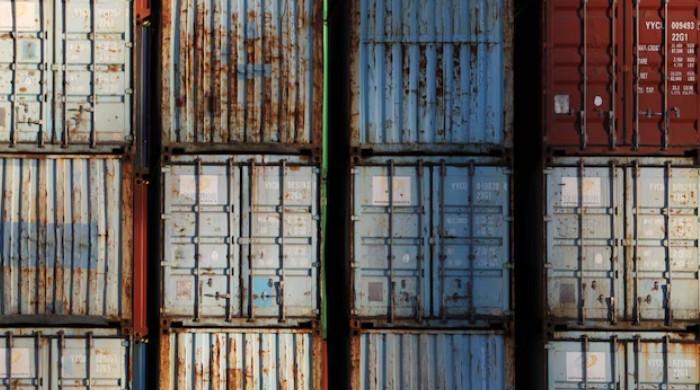China has announced it will increase tariffs on goods from the US to 125%, while intending to disregard any further levies imposed. This decision reflects a view that it is no longer economically viable for importers to source products from America.
Following a week of market instability caused by escalating trade barriers between the world’s two largest economies, China has downplayed the increasing brinkmanship, referring to it as a “joke” and a “numbers game.”
China has placed blame on the United States, specifically for instigating market turbulence through extensive tariffs that have had a global impact. They asserted that the US should take full responsibility for the resulting disorder.
Extensive tariffs have been used as leverage, aiming to pressure manufacturers into establishing operations within the United States and to encourage countries to reduce barriers to American goods.
Amidst the week’s market volatility, there was a partial reversal in the approach to reshaping the global commerce system, with many tariffs being frozen for 90 days. However, tariffs on Chinese goods were raised to a cumulative total of 145%.
The latest retaliatory measures from Beijing will set its levies at 125%, effective from Saturday.
The finance ministry indicated that additional measures by the US would be disregarded. It was stated that, given the existing tariff levels, US goods exported to China are unlikely to find market acceptance.
According to the commerce ministry, the imposition of unusually high tariffs on China has devolved into a numbers game lacking practical economic significance.
A spokesperson conveyed that if the US persists in this approach, China intends to ignore it.
Beijing also plans to file a lawsuit with the World Trade Organization in response to the latest levies.
‘Beautiful thing’
While acknowledging “transition costs and transition problems” stemming from the tariff strategy, global market turmoil has been dismissed.
It was stated that ultimately, the situation would resolve into “a beautiful thing.”
The European Union was described as “very smart” for choosing not to implement retaliatory levies.
It was noted that the EU had been prepared to announce retaliation but reconsidered upon learning about the actions taken with respect to China.
However, it was conveyed to the Financial Times that the bloc remains equipped with a “wide range of countermeasures” should negotiations prove unfruitful.
As an example, a levy on the advertising revenues of digital services could be applied across the bloc.
There were also calls for the EU to remain prepared to counter the tariffs, which are currently paused but not permanently removed.
A statement was made on X, emphasizing the need for Europe to continue developing necessary countermeasures in collaboration with the European Commission.
During discussions with Spain’s Prime Minister, it was stated that China and the EU should unite on the matter.
It was stressed that cooperation would not only protect their own legitimate rights and interests, but also uphold international fairness and justice.
‘No winners’
Following declines on Wall Street, Asian markets faced renewed pressure.
Tokyo experienced a significant drop, while other markets such as Sydney, Seoul, and Singapore also declined.
European markets also saw declines in response to China’s recent actions.
Oil and the dollar experienced declines due to concerns about a global slowdown, while gold reached a new record, as investors, unnerved by erratic policies, divested from US Treasuries.
The optimism from the tariff pause is dissipating quickly.
In summary, the world’s two largest economies are engaged in a full-blown trade war, with no clear victors.
‘Golden Age’
Critics argue that the policies are causing disruption for companies reliant on intricate supply chains, alienating allies, and increasing costs for American consumers.
However, it was posted on social media that a “Golden Age is coming,” with a commitment to protecting interests, engaging in global negotiations, and stimulating economic growth.
Meanwhile, it has been cautioned that the tariffs could be reinstated after the 90-day period.
It was stated that if a satisfactory deal cannot be reached, the situation would revert to its previous state.
The reversal was termed a “welcome reprieve,” and intentions to commence negotiations on a new economic deal were expressed.
Vietnam has announced an agreement with the United States to initiate trade talks, while a delegation is being sent to Washington.
As China seeks to build alliances against the trade war, there are plans to visit Vietnam, Malaysia, and Cambodia, where the tariff situation is expected to be a key topic.



Comments (0)
No comments yet. Be the first to comment!
Leave a Comment